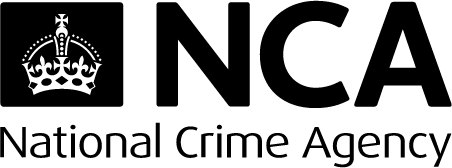
Monday 5 Jul 2021
Azeri elite agrees to hand over £4 million
A Politically Exposed Person has agreed to surrender £4m which was transferred via the Azerbaijan Laundromat money laundering scheme.
London-based Suleyman Javadov has close links to the ruling elite in Azerbaijan where his father was deputy energy minister until his dismissal last year.
The NCA were granted Account Freezing Orders in 2018 and 2019 on ten bank accounts held by Javadov and his wife Izzat Khanim Javadova which contained a total of £6.4 million. The forfeiture of £4,033,803.21 held in four accounts in Suleyman Javadov’s name settles the NCA’s claim, and the freezing orders on the other accounts now fall away.
A forfeiture hearing to recover the money was due to start at Westminster Magistrates’ Court today (5 July), but will now not go ahead following the settlement.
Andy Lewis, NCA Head of Asset Denial, said: “This result is a significant success for the UK – £4m for the public purse – following the first case seeking forfeiture of funds relating to the so called Azerbaijan Laundromat.
“It follows a challenging and complex NCA investigation lasting more than two years, which resulted in Javadov agreeing to settle rather than face a court battle.
“Anyone who used the Azerbaijan Laundromat should not rest easy, as your assets in the UK are potentially recoverable.
“Our investigation shows the inherent danger of moving money in this way. If money transfers though a ‘laundromat’ system, we can go after it. We will use all means at our disposal to prevent the UK being attractive for this sort of activity.”
Matthew Long, Director of the National Economic Crime Centre at the NCA, said “This case is a significant moment in the UK’s fight against illicit finance. What we’ve shown here is that the method you use to transfer money matters.
“The use of Civil powers to target money entering the UK via illegitimate means is gaining real momentum. International elites should pay close attention and make sure any method used to transfer their assets is legitimate from end-to-end.”
The NCA investigation involved cooperation from law enforcement partners in a number of countries including Denmark, Estonia, Germany, Latvia and Spain.
The NCA recognise that this agreement does not amount to an admission or finding of liability or wrongdoing against either or both of the Respondents.
Notes to editors:
Civil Recovery proceedings (including Account Forfeiture Orders) provide for the recovery of property which has been acquired through unlawful conduct and therefore is, or represents the proceeds of crime. Unlike criminal confiscation, civil recovery is not dependent on a criminal conviction. The civil recovery claim focuses on the property as opposed to the person and whether property is recoverable or not is determined by the on the civil standard of proof namely, the balance of probabilities.
Civil proceedings involve no criminal charge, and the expectation of the civil courts is that, if at all possible, the dispute should be settled between the parties without recourse to a contested hearing before a judge.
There are always risks with litigation, and delays, and costs, and it is the responsibility of the NCA to consider the bigger picture. Removing £4m from the system is a very significant success.
Contact Information
Stuart Hadley
stuart.hadley@media.nca.gov.uk
